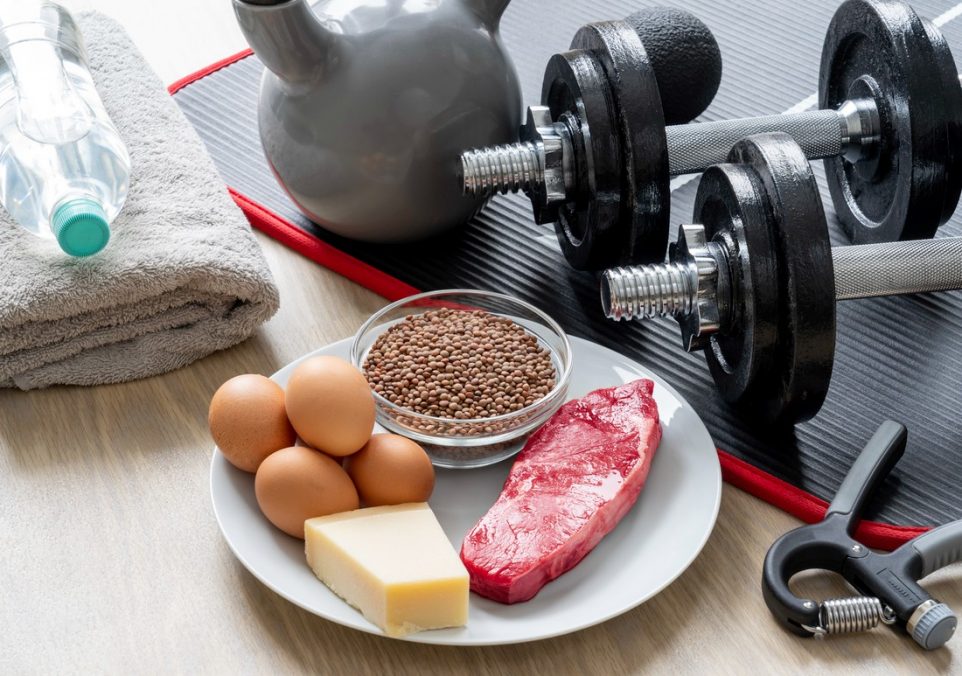How Much Protein Should You Eat to Gain Muscle?

Are you looking to gain muscle mass but are unsure of how much protein you should be consuming? Protein is essential for building muscle and helping your body repair after a grueling workout. The truth is, everyone’s protein needs are different. In this article, we’ll explore the science behind protein and provide tips for how to calculate your protein needs for maximum muscle gains.
We’ll discuss the different types of protein, the importance of protein timing, and the best sources of protein to include in your diet. We’ll also provide a formula to help you determine your daily protein needs, so you can make sure you’re getting enough to get the results you want.
Protein Basics
When it comes to building muscle, protein is an essential part of the equation. This macronutrient plays an important role in muscle growth, as well as overall health and wellness. How much protein do you need to consume to gain muscle? Keep reading for a comprehensive guide on how much protein you should eat to support your muscle-building goals.
What Is Protein?
Proteins are large molecules made up of amino acids that our body needs to build and repair tissues, such as muscle tissue. Our bodies cannot make all of the amino acids we need, so it’s important to get them through the foods we eat. Protein can be found in both animal and plant sources. Animal proteins include lean meats, dairy, and eggs, while plant proteins include beans, nuts, seeds, and whole grains.
Reasons To Eat More Protein
Protein is essential for building muscle mass and keeping your body strong and healthy. It also helps maintain healthy bones and teeth, keep organs functioning properly, balance hormones, and regulate your metabolism. It can also help reduce hunger cravings, boost energy levels, improve mood, and even help you lose weight.
Protein is essential for building and maintaining muscle mass. It helps stimulate the synthesis of new muscle fibers, while also helping to repair existing fibers that have been broken down from exercise or weight training. Without adequate amounts of protein in your diet, it’s difficult for your body to build new muscle or maintain what you already have.
How Much Protein Should You Eat To Lose Weight
The truth is, you don’t need to eat as much protein as you might think to lose weight. The recommended daily intake of protein for an average adult is 0.8 grams per kilogram of body weight or 0.36 grams per pound. That means if you weigh 150 pounds, you should consume around 54 grams of protein. So why do so many people believe they need more than this?
Sources of Protein
When it comes to sources of dietary protein there are plenty of options available. From animal proteins like lean meats, dairy products, eggs, and fish to plant proteins such as beans, nuts, and seeds, there’s something for everyone’s tastes and preferences! Here is a brief overview of some popular sources.
Animal proteins offer high-quality proteins with all nine essential amino acids. They are also rich in minerals like zinc and B vitamins for energy production and metabolism support.
Plant sources of dietary proteins are an excellent choice for those who want to reduce their animal product consumption but still get adequate amounts of essential amino acids. They are also typically lower in calories than animal proteins, making them ideal for those looking to shed some extra pounds.
Consuming small amounts of protein four times throughout the day can help ensure all those essential amino acids are in constant supply. Some great options here would be scrambled eggs with toast at breakfast time or a quick protein snack like Greek yogurt with nuts before lunch. If you struggle to get enough protein, try protein bars as a supplement.
Conclusion
Protein is an essential macronutrient when it comes to building muscle, and getting the right amount of protein each day is key. Along with protein, other key nutrients should be taken into consideration for optimal muscle growth and performance. With the right balance of these macronutrients and lifestyle modifications, you can be on your way to building the body of your dreams.
Trustworthy Insights for You
With years of combined expertise in online publishing, OvertimeReviews embodies the lessons learned from SEO strategies to paid advertising experiences. We've navigated the highs and lows, and our goal remains clear: to equip readers with comprehensive information they can trust.
